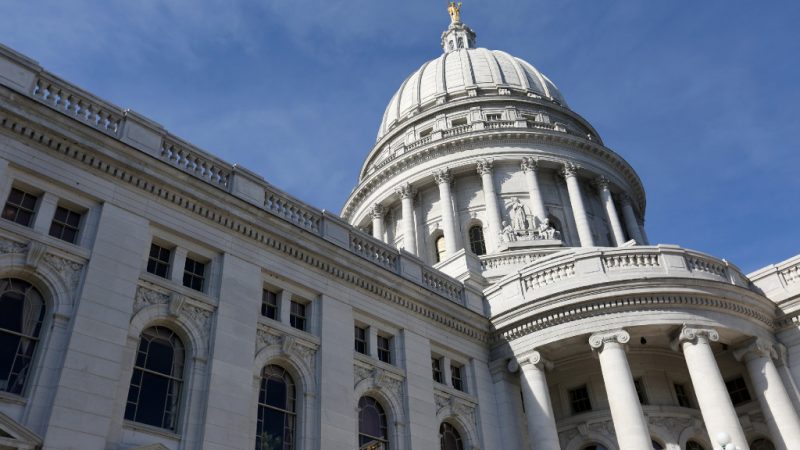Joint Finance Co-chair Sen. Howard Marklein and Assembly Speaker Robin Vos are circulating legislation that would terminate enhanced federal unemployment benefits in Wisconsin.
Laid-off workers are currently getting $300 a week more on top of their state unemployment benefits. Vos, R-Rochester, and Marklein, R-Spring Green, called that a disincentive to work. Between the maximum state benefit of $370 and the enhanced federal money, it amounts to $16.75 an hour for a typical 40-hour work week.
The lawmakers argued many employers can’t get new workers in the door when they’re getting that much in unemployment.
“When you pay people to stay home, they stay home,” Marklein said.
>> WisPolitics is now on the State Affairs network. Get custom keyword notifications, bill tracking and all WisPolitics content. Get the app or access via desktop.
The GOP lawmakers hope to have the bill on the floor when the Legislature returns next month. Republican members of the state’s congressional delegation and state chambers of commerce have called on Gov. Tony Evers to end the additional benefit, which runs through September.
So far, 21 states have ended the enhanced benefits, which were put in place at the outset of the pandemic.
Evers’ office dismissed the suggestion enhanced benefits are discouraging a return to work, noting the state’s unemployment rate dipped to 3.8 percent in March.
That’s not far off the 3.2 percent for March 2020 as Wisconsinites returned to the workforce — the state’s labor market was already tight before the pandemic.
“If Republicans are interested in putting this pandemic behind us, they’ll stop playing politics with our economic recovery and pass the governor’s Badger Bounceback agenda so we can invest in making health care more affordable, supporting our kids and our public schools, and building infrastructure and creating jobs across our state,” said Evers spokeswoman Britt Cudaback.
Vos acknowledged some students still learning virtually or in a hybrid setting and some daycares not reopening are factors in the labor market.
The Joint Committee for Review of Administrative Rules also will vote today to restore the state’s requirement that people on unemployment perform at least four job searches a week. Those who turn down a job offered to them are disqualified from the program.
But Vos said he’s not convinced the Evers administration will closely monitor those who turn down job offers or that restoring the work requirement will be sufficient to spur people to return to the workforce.
“The biggest thing is taking away the financial incentive,” Vos said.
Some states have begun using federal COVID relief funds to offer an incentive for those on unemployment to return to the workforce. For example, Oklahoma ended the enhanced federal unemployment benefits June 26. It is offering an incentive of up to $1,200 to 20,000 people who were on the enhanced benefits between May 2 and May 15 after working six consecutive weeks at a new job.
Marklein said a similar approach was considered for the bill, but sponsors declined to include a provision because it would be unfair to existing employees already on the job.
See the release here.




